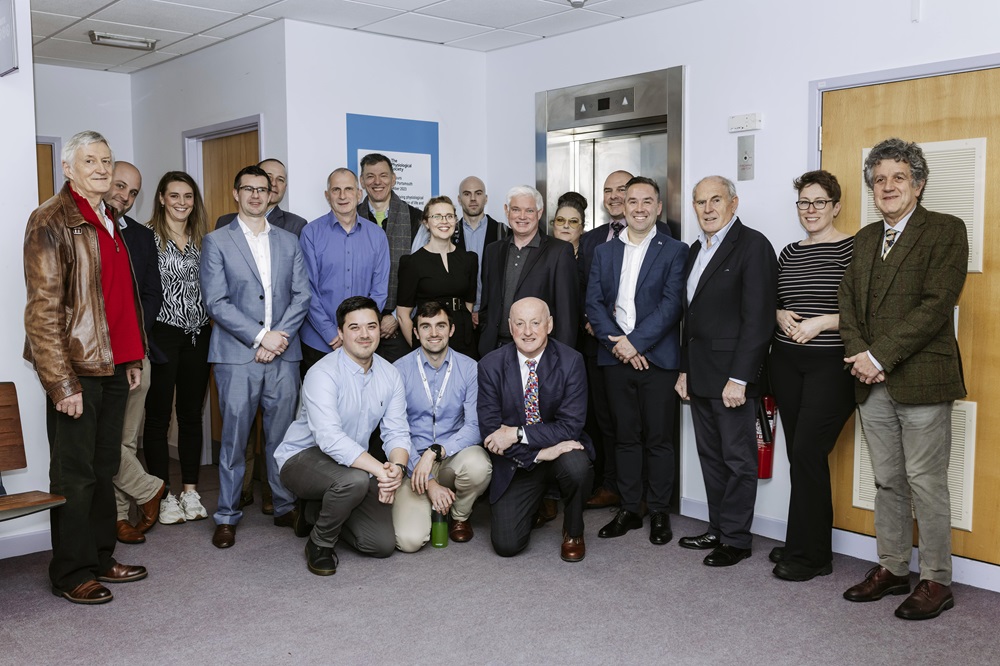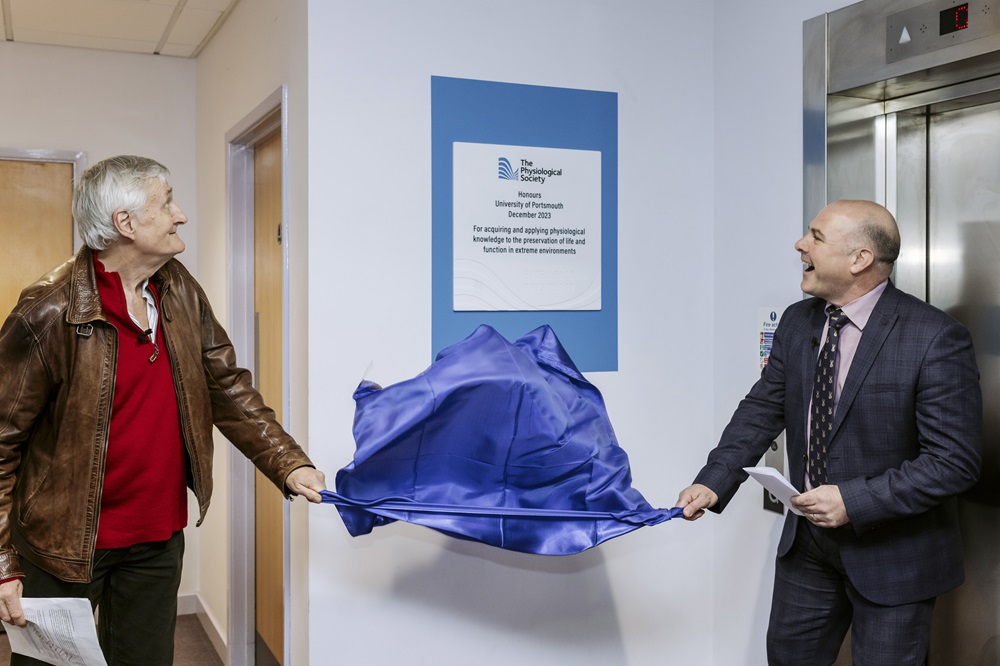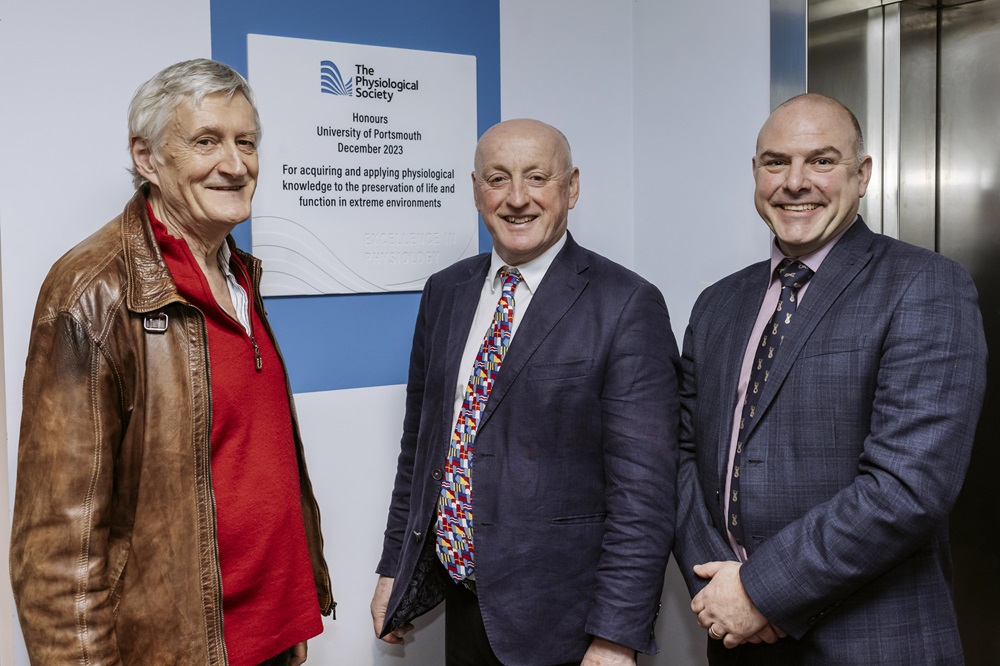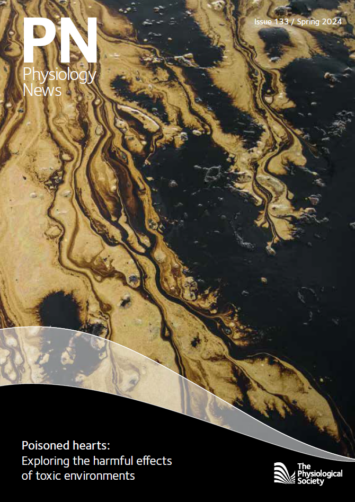
Physiology News Magazine
Celebrating life-saving research in Portsmouth
Membership
Celebrating life-saving research in Portsmouth
Membership
https://doi.org/10.36866/pn.133.42
Life-saving physiological research took centre stage at an event to celebrate the University of Portsmouth’s Extreme Environments Laboratory (EEL) in December. The EEL became the first institute to be given our inaugural Excellence in Physiology Award. To mark the accolade, a plaque was unveiled at the University’s School of Sport, Health and Exercise Science, which is home to the ELL.

Formed in 1998, the EEL is home to the world-renowned Extreme Environments Group, which investigates the physiological and psychological responses to adverse environments, including heat, cold, and hypoxia and the preparation and protection of those who enter such environments. Their research has influenced global practices and policies, improving both athlete and occupational safety in extreme environments.
Research conducted at the EEL has paved the way for critical enhancements in international water-safety regulations, impacting athletes across 200 countries and various sports. The safety protocols of open-water swimming competitions have also been notably altered through the group’s findings, considerably reducing the risk of dying while participating in cold-water swimming.

One of the most impactful areas of the EEL’s research lies in their work on drowning prevention, a global public health issue. Their efforts have given rise to “Respect the Water”, a national water safety campaign initiated by the RNLI in 2014. Underpinned by the EEL’s findings, the campaign has successfully increased public understanding of the importance of floating as a primary survival behaviour in water-related emergencies.
The British Olympic and Paralympic teams have also reaped substantial benefits from work carried out at the EEL, including improved training and preparation practices across ten Olympic and Paralympic sports.
“It is a huge honour for our work to be recognised by The Physiological Society. Research has helped us understand, evaluate and enhance people’s comfort, performance and survival in extreme environments around the world. This event has been a brilliant opportunity to showcase the impact the EEL has had since its formation at the university 25 years ago, and celebrate this significant milestone”
Professor Mike Tipton MBE, Co-founder ofthe EEL, University of Portsmouth, UK

